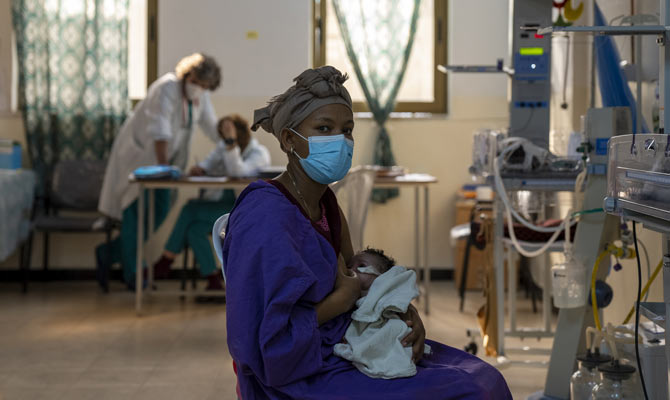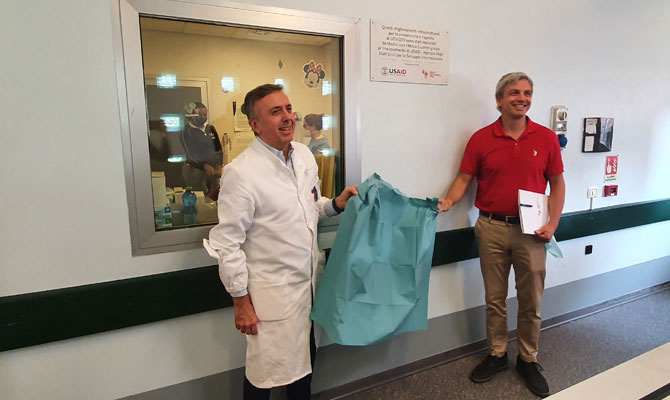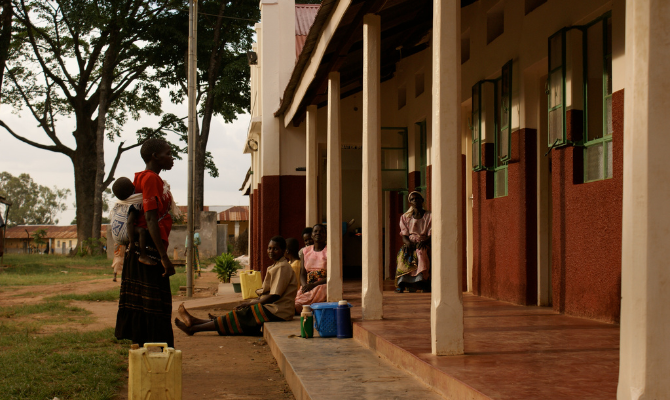Three hospitals involved, in Addis Ababa, Tulu Bolo and Wolisso, and a two-day event in each of the respective cities. All this to say firmly that it is possible to improve accessibility and innovate care services for newborn and children in the Oromia region of Ethiopia. This was the aim of the Newborn Survival Project, supported by the Italian Agency for Development Cooperation, which is coming to an end after three years of activities dedicated to building, improving, equipping and supplying drugs to neonatal intensive care units: all fundamental actions to help strengthen neonatal, maternal and child health in Ethiopia. The intervention, which extended to five Woredas and fifteen Kebeles, also aimed to train and strengthen the skills and competencies of local staff, raise awareness in the communities on good neonatal care practices and ensure a referral system for problematic cases.
St. Luke’s Hospital in Wolisso records more than 4,200 deliveries per year and around 100 babies are admitted every month, half of whom are transferred from other parts of the country. These numbers clearly show the importance of St. Luke’s as a reference centre and the need for an adequate neonatal unit” says Eleonora Balestri, a CUAMM neonatologist. The positive impact of the project is clear and has led to a state-of-the-art neonatal unit: it is the only hospital in the country equipped with wall-mounted machines for the supply of medical gases, both oxygen and air”.
And the results of the project indicate a decrease in neonatal mortality of 2.8% at St. Paul’s Hospital in Addis Ababa, 6.6% at St. Luke’s in Wolisso and 2.2% at Tulu Bolo Hospital. A total of 14,691 newborns were admitted to the three NICUs (Neonatal intensive care units), and 53 nurses and 56 biomedical engineers were trained.
“Having a neonatal unit is crucial for reducing mortality. Newborn babies need special care, in a dedicated environment and with specialised staff,” confirms Turegn Asefa Kebeta, paediatrician at Tulu Bolo Hospital.
Regarding awareness-rising activities at the community level, 26 health workers and 575 women community activists were trained. “I sensitise the community on maternal and child health, good hygiene practices, and on recognising the warning signs,” explains Birhane, leader of the women community activists. We visit pregnant women in their homes to promote the importance of antenatal visits, vaccinations, and breastfeeding”.
The focus of the intervention was on caring for mothers and children, because the health of the whole community depends on their health. “Being ‘with’ means sharing the daily difficulties and rejoicing together in the achievements,” continues Eleonora. Africa means struggling alongside them every day, trying to identify needs together, to find solutions, always together, learning also to accept that changes and improvements need time, required by the context and circumstances, sometimes different from “ours”.





